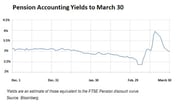Nearly half of Americans in a new study believe they will be able to retire on their own terms because either they will be financially ready to do so or simply want to enjoy themselves while they can. They should think again.
In a survey, half of retirees said they had left work earlier than expected, the vast majority for reasons outside of their control, including 34% who reported unanticipated job loss and 25% health care issues, Allianz Life reported Monday.
“Many Americans are in need of a wake-up call about the very real possibility that their retirement start date might not be when they want it to be, particularly given the recent turmoil,” Kelly LaVigne, vice president of consumer insights at Allianz Life, said in a statement.
“Even those who consider themselves to be financially stable and on track for retirement need to plan for the impact an earlier-than-expected start date can have on their retirement years.”
According to the Employee Benefit Research Institute, the median worker plans to retire at age 65, while retirees say they stopped working at a median age of 62.
LaVigne noted that those who anticipate and plan for unexpected events are likelier to develop a retirement plan that provides the flexibility to change course without too much disruption to long-term financial security.
Allianz Life conducted an online survey in January with a nationally representative sample of 1,000 individuals 25 and older with an annual household income of $50,000 or more if single or $75,000 or more if married or partnered, or who had investable assets of $150,000.
The study sample fell into three categories in order to get different perspectives on retirement: pre-retirees 10 years or more from retirement, near-retirees within 10 years of retirement, and those who had already retired.
Expectations vs. Reality
The Allianz Life study also found wildly different expectations about working in retirement versus the reality. Sixty-five percent of non-retirees said it was likely they would work at least part time in retirement, but only 7% of retirees surveyed were currently doing so.
It appears that the closer people are to retirement, the less attractive they find the idea of extending their employment.
Asked whether they would rather retire at age 55 and have their basic expenses covered in retirement or work until age 75 and live more extravagantly in retirement, only 23% of retirees said they would prefer to work longer, versus 33% of near-retirees and 48% of pre-retirees.









 April 14, 2020 at 08:40 AM
April 14, 2020 at 08:40 AM











